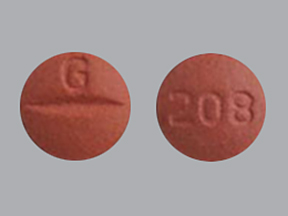
Moexipril Coupons & Savings Card – Discount Prices from $41.29
My prescription
Edit
15MG, Moexipril (90 Tablets)
Select pharmacy

CVS
$55.34
COUPON PRICE
Walgreens
$41.29
COUPON PRICE
Walmart
$88.13
COUPON PRICE
Albertsons
$92.03
COUPON PRICEMoexipril savings card
Show this card to your pharmacist
Walgreens
$41.29
BIN
ID
PCN
GRP
015995
LHKPU681368
GDC
DR33
Powered by
More prescriptions for hypertension
More prescriptions for hypertension
Moexipril dosage forms
Dosage Quantity Price from Per unit 7.5MG 90 Tablets $47.34 $0.53 7.5MG 100 Tablets $50.57 $0.51 15MG 90 Tablets $55.34 $0.61 15MG 100 Tablets $58.57 $0.59
| Dosage | Quantity | Price from | Per unit |
|---|---|---|---|
| 7.5MG | 90 Tablets | $47.34 | $0.53 |
| 7.5MG | 100 Tablets | $50.57 | $0.51 |
| 15MG | 90 Tablets | $55.34 | $0.61 |
| 15MG | 100 Tablets | $58.57 | $0.59 |
Moexipril Warnings
Moexipril is a medication used to manage high blood pressure, but it comes with important safety considerations and warnings. It is crucial to understand these risks and precautions to ensure safe use. Below is a summary of the key safety information:
Pregnancy Risks: Moexipril may cause serious harm to an unborn baby and should not be taken during pregnancy. If you are pregnant, planning to become pregnant, or suspect you might be pregnant, consult your healthcare provider immediately to discuss safer alternatives and appropriate birth control measures.
Angioedema: This medication can lead to angioedema, a rare but severe swelling that may affect the face, throat, tongue, or stomach. This condition can be life-threatening if it causes breathing difficulties. Individuals who are Black, older, or female may be at higher risk. Seek urgent medical attention if you experience unusual swelling, stomach pain, or trouble breathing.
Low Blood Pressure: Moexipril may cause a significant drop in blood pressure, leading to symptoms like dizziness, tiredness, or lightheadedness. This risk is heightened when starting the medication or increasing the dose. To prevent falls, rise slowly from sitting or lying positions, and stay well-hydrated. Immediate medical care is advised if you fall and hit your head.
Kidney Concerns: While often beneficial for kidney health, Moexipril might worsen certain kidney conditions, especially in individuals with renal artery stenosis or severe heart failure. Regular kidney function tests may be necessary. Notify your healthcare provider if you notice a decrease in urination.
High Potassium Levels: Moexipril can increase potassium levels in the body, posing potential health risks. This is more likely if you have diabetes, kidney issues, or are on other potassium-raising medications. Inform your healthcare provider of your full medical history and current medications. Watch out for symptoms of high potassium, such as nausea, muscle weakness, or irregular heartbeat.
Liver Issues: In rare cases, Moexipril may cause liver problems, including blocked bile ducts. Routine liver function tests might be recommended. Contact your healthcare provider immediately if you experience symptoms like fatigue, abdominal pain, or yellowing of the skin or eyes.
Contraindications:
- Avoid using Moexipril if you have a history of angioedema.
- Do not take Moexipril concurrently with aliskiren (Tekturna) if you have diabetes, as this can lead to serious health complications.
Always consult with a healthcare professional before starting or stopping Moexipril, and ensure they are informed of any existing health conditions or medications you are taking to avoid potential adverse interactions.
Moexipril Side Effects
Common side effects:
- dizziness
- lightheadedness
- tiredness
- dry cough
- flu-like symptoms
- diarrhea
- sore throat
Serious side effects:
- high potassium levels
- muscle weakness
- irregular heartbeat
- kidney issues
- reduced urination
- swelling in the extremities
- liver problems
- persistent nausea
- loss of appetite
- abdominal pain
- yellowing of the eyes or skin
- dark urine
- severe allergic reactions
- swelling of the face, lips, tongue, or throat
- difficulty breathing
- severe dizziness
Moexipril Interactions
Interactions with high risk of serious adverse effects and should be avoided:
- Aliskiren
- Sacubitril
- Bee/wasp sting allergy desensitization injections
Interactions with moderate risk that may require dose adjustment, closer monitoring, or timing changes:
- Everolimus
- Sirolimus
- Lithium
- ARBs (e.g., Losartan, Valsartan)
- Diuretics
Interactions with low risk that usually do not require a change in therapy:
